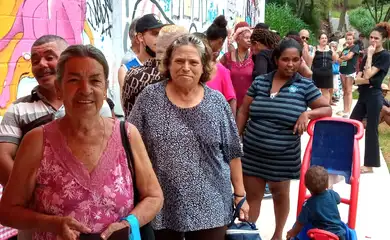Black economic empowerment would increase GDP, say experts

Brazil’s economy could be 30 percent larger if it were less unequal and if black people, who represent 52 percent of the population, had the same opportunities as white people. This includes access to longer education, better job prospects, credit for entrepreneurship, and improved living conditions.

This assessment is echoed by researchers, activists, international organization representatives, experts, and Brazilian government officials who participated in the Economic Empowerment of the Afro-descendant Population seminar, held this week at the Institute for Applied Economic Research (Ipea) headquarters in Brasília.
“Economic empowerment of the black population is not an option, it's a necessity. If we don't do this, we won't become a developed country,” said Luciana Mendes Santos Servo, president of the institute.
“If we don't invest effectively so that this population sees itself as part of the future, we won't generate the development we need. It won't lead to an increase in productivity or a rise in gross domestic product,” added Servo.
Tereza Campello, the socio-environmental director of the National Bank for Economic and Social Development (BNDES), also views the inequality that excludes a large part of the black population as "a barrier to the nation's growth."
She believes the issue goes beyond historical reparations. “If Brazil doesn't overcome brutal inequality, we won't be able to transform the economy itself.”
“From the point of view of consumption, we are missing out on opportunities to enhance our internal market. From the point of view of capacities and potential, we're experiencing a significant loss in innovation, work capability, and creative capacity,” Campello lamented.
Loss of consumption
In the opinion of Ana Carolina Querino, deputy representative of UN Women in Brazil, inequality and exclusion obstruct the progress of capitalism in Brazil. She asked: “How can we consider capitalism based on its principles of profit if we don't address who can generate that profit and who can benefit from it?”
Carolina Almeida, international advisor to the NGO Geledés—Black Women's Institute, believes that institutional racism in Brazil functions as a “strategy of exploitation” that “favors and privileges some while depriving another part of the population.”
From her point of view, it's essential to focus on public policies that generate income. “We don't want survival entrepreneurship, which is already occurring; we don't want entrepreneurship that arises from precarious situations and merely helps the entrepreneur get by for a month. We want sustainable entrepreneurship and sustainable development.”
“Without solving the racial problem, we won’t realize Brazil’s immense economic potential,” said José Henriques Júnior, an economist at the Ministry of Finance and coordinator of the G20 Finance Track. He added that multilateral and development banks, such as the National Bank for Economic and Social Development (BNDES), “have a role to play in leveraging public policies.”
Luciana Mendes from Ipea believes that it is still a “challenge” for the country to recognize that “discrimination is harmful not only to those who suffer directly from it but also to society as a whole.” She argues that this understanding is necessary for the issue of empowering the black population to become a “central agenda.”







